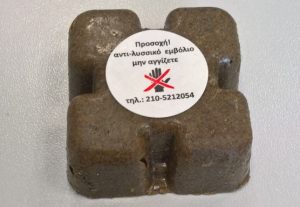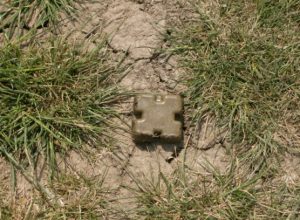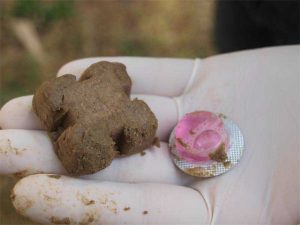General precautions for protection against anti-rabies vaccine-baits, intended for the immunization of wild animals – Spring 2019
The Greek Ministry of Agriculture and Rural Development from 3 April 2019 will conduct the scheduled autumn wild-life rabies vaccination campaign, by aerial dropping of baits containing a live attenuated rabies vaccine in non-residential areas, in the Regional Units of Thessaloniki, Halkidiki, Kilkis, Serres, Pella, Imathia, Pieria, Kozani, Grevena, Kastoria, Florina, Ioannina, Larissa, Trikala, Karditsa, Arta, Rodopi, Xanthi, Evros (except Samothraki island), Kavala (except Thassos island), Drama, as well as parts of the Aitoloakarnania, Preveza and Evritania Regional Units. However, individuals or pets may come in contact with these baits during walks or other activities in nature. There is also the possibility of vaccines being dropped, dragged or transported by animals or due to weather conditions within residential areas.
 |
If you accidentally find a vaccine-bait: Avoid touching it.
- If you need to take it away: avoid touching it with bear hands. Use plastic gloves or cover hands with a plastic bag in order to pick up the bait and place it in an area where people don’t pass frequently, e.g. inside bushes or in a plant covered area.
If you had contact with vaccine-bait:
- Potential risk from the bait exists only if the liquid content of the capsule inside the vaccine-bait comes in contact with open wounds, eyes or mouth. Wash the skin area that came in contact with the vaccine-bait with plenty of water (and soap if possible). You can additionally use antiseptic solution (alcohol or iodine based solution).
- Wash eyes and mucus membranes that came in contact with the vaccine-bait with plenty of water.
- If you had contact with the content of the inside capsule, you should seek medical assistance. If possible, bring the vaccine-bait with you by taking precautions (use plastic gloves or put the vaccine-bait in a plastic bag) and demonstrate it to the medical personnel.
- For more information you may call NPHO, tel.: +30 210-5212054.
|
 |
 |
Department of Epidemiological Surveillance and Intervention
Zoonoses Unit





